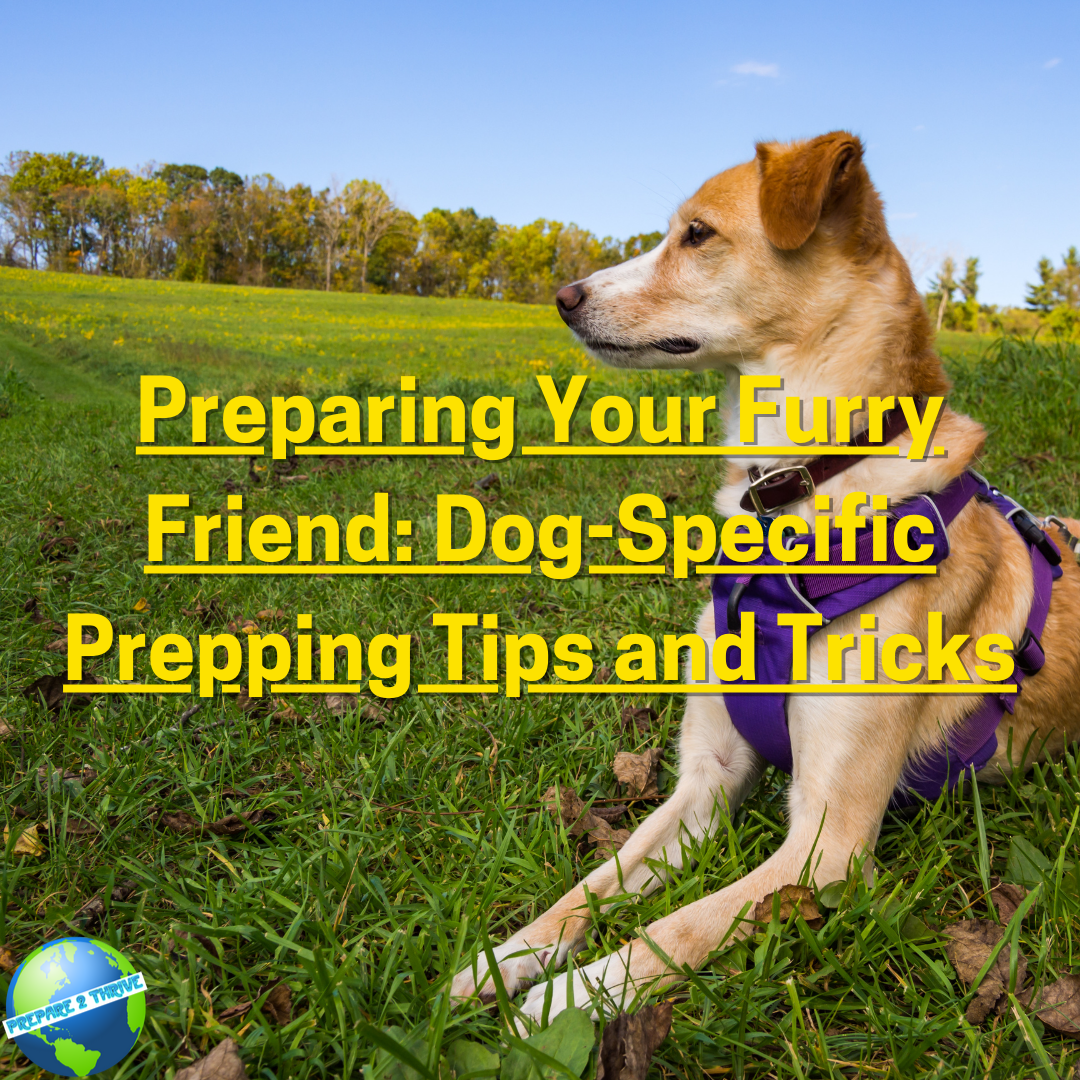Introduction:
As a responsible dog owner, it's crucial to consider the well-being of your furry friend in times of emergencies or unexpected situations. Just like you would prepare yourself and your family, preparing your dog can make a significant difference in their safety and comfort during challenging times. In this blog, we will provide you with practical advice and strategies for preparing your furry friend, ensuring their needs are met, and keeping them safe during emergencies.
Understanding Your Dog's Needs:
To effectively prepare your dog, it's essential to recognize their unique needs and characteristics. Different dog breeds have different requirements for food, water, and medical supplies. Assessing your dog's specific needs will help you create a comprehensive emergency plan tailored to their requirements. Additionally, identify any existing health conditions or special considerations your dog may have to address them adequately during emergencies.
Building an Emergency Kit for Your Dog:
Creating an emergency kit for your dog is an important step in their preparedness. Your dog's emergency kit should include essential items such as food, water, medications, and medical records. When selecting food for your dog's emergency supply, opt for long-lasting options that meet their dietary needs. Storing water in a safe and accessible manner is also crucial, ensuring your dog has an adequate supply during emergencies. Additionally, consider including comfort items and familiar scents in the emergency kit to help reduce stress for your dog.
Ensuring Your Dog's Safety and Identification:
In the event of separation during an emergency, it's crucial to take steps to increase the chances of being reunited with your dog. Microchipping your dog and ensuring their registration is up to date can significantly enhance the chances of a reunion. Visible identification tags with your current contact information should be worn by your dog at all times. It's also wise to prepare a "lost dog" flyer and keep a recent photo of your dog handy for identification purposes.
Training and Behavior Considerations:
Training your dog is not only important for everyday life but also for their safety during emergencies. Teaching them basic commands and obedience skills can significantly improve control in critical situations. Additionally, socializing your dog to different environments and people helps reduce stress and anxiety during evacuations. Desensitizing your dog to common emergency noises or situations can also prevent panic or fear reactions, ensuring their well-being.
Developing a Dog-Specific Emergency Plan:
To prepare your dog for emergencies, it's crucial to develop a dog-specific emergency plan. Start by identifying potential risks and hazards in your area that may affect your dog's safety. Establish evacuation routes and designated meeting points for your family and your dog. It's also important to create a communication plan to stay informed about emergency alerts and updates, ensuring you can take appropriate action promptly.
Maintaining Health and Wellness During Emergencies:
Health and wellness should remain a priority for your dog, even during emergencies. Stock up on essential medications and medical supplies to ensure you have an adequate supply. Regularly check your dog's first aid kit and replenish any expired items. Understand common health issues that may arise during emergencies and educate yourself on how to address them effectively.
Conclusion:
Preparing your furry friend for emergencies is a responsibility that every dog owner should take seriously. By understanding your dog's needs, building an emergency kit, ensuring their safety and identification, considering training and behavior, developing a dog-specific emergency plan, and maintaining their health and wellness, you can significantly increase their chances of staying safe and comfortable during challenging times. Take action now and start implementing these dog-specific prepping tips and tricks to ensure the well-being of your beloved companion. Remember, their safety is in your hands.
